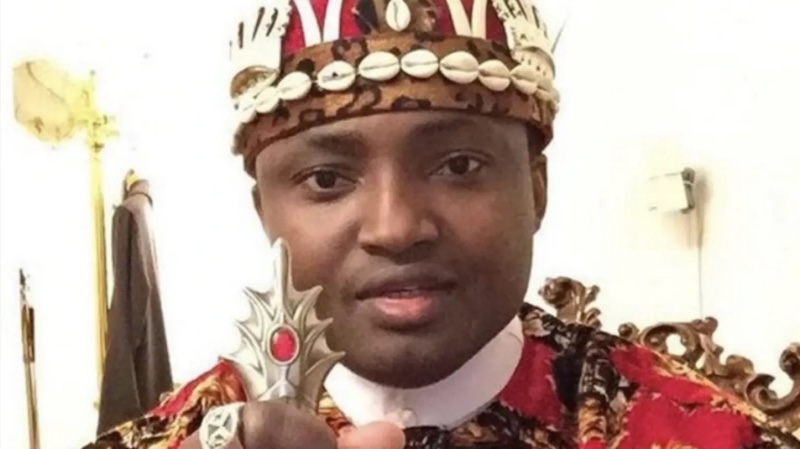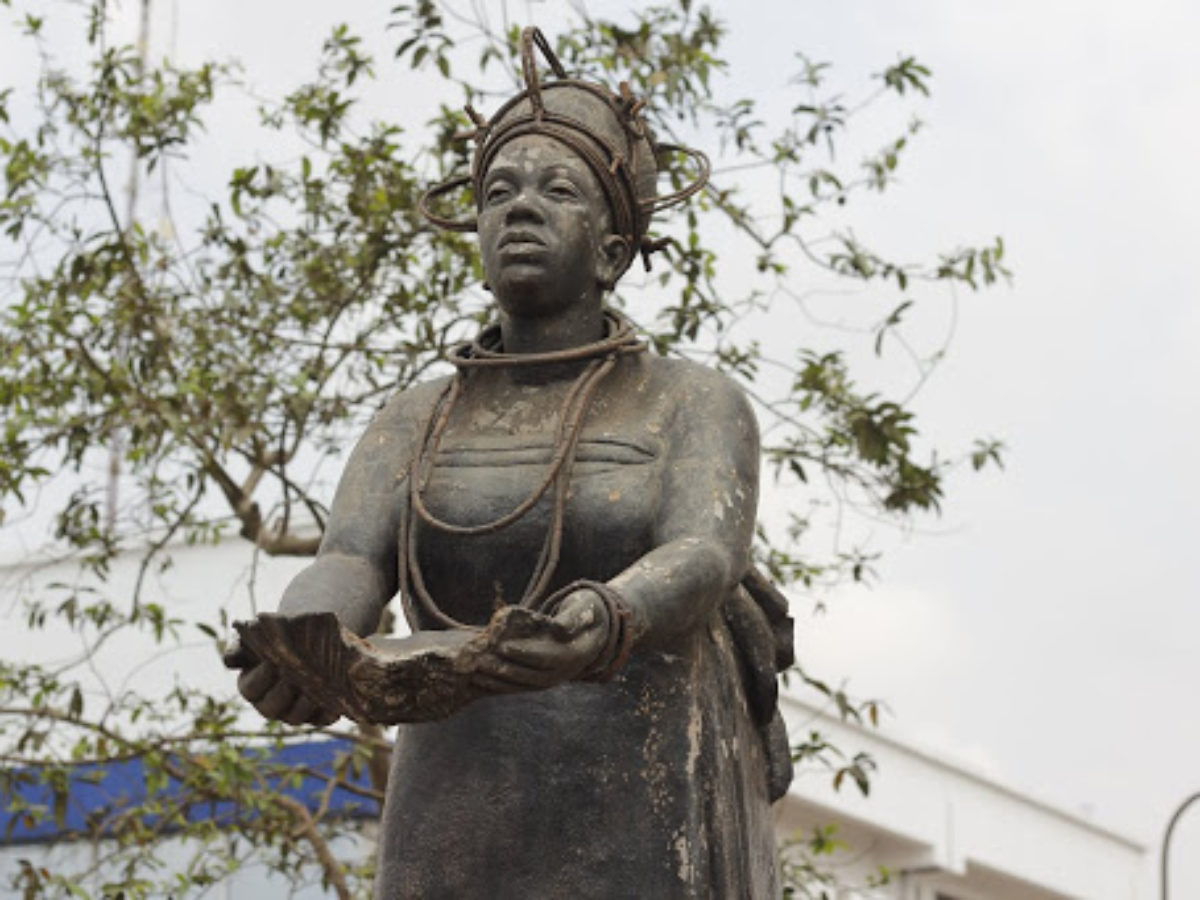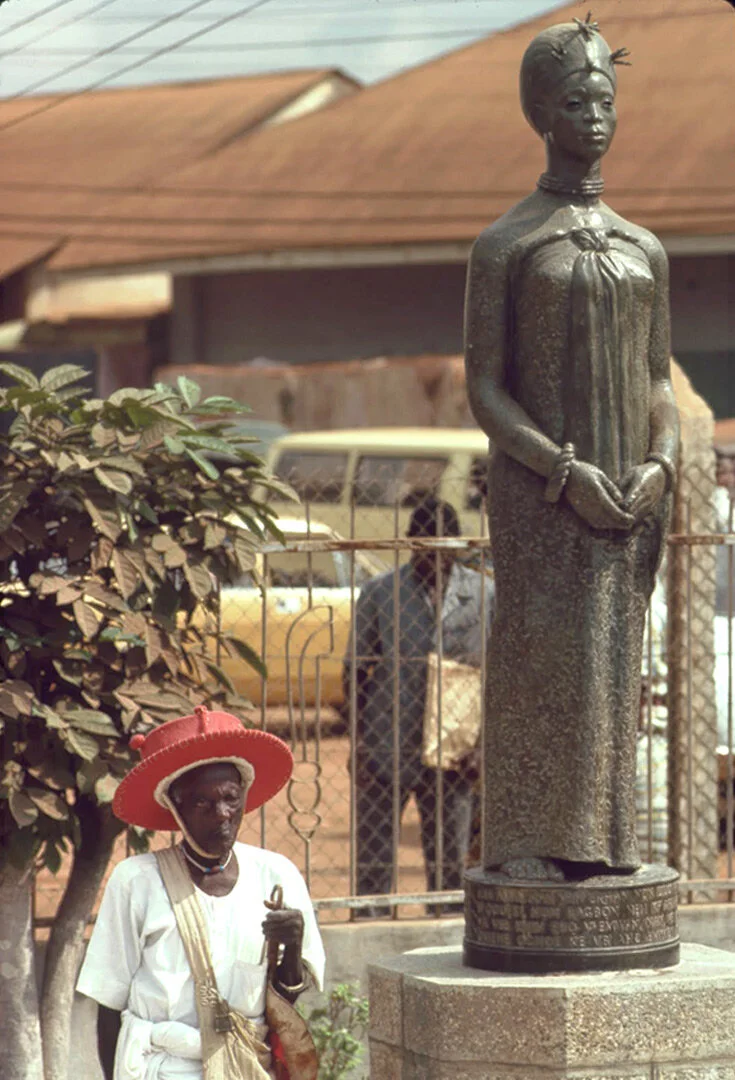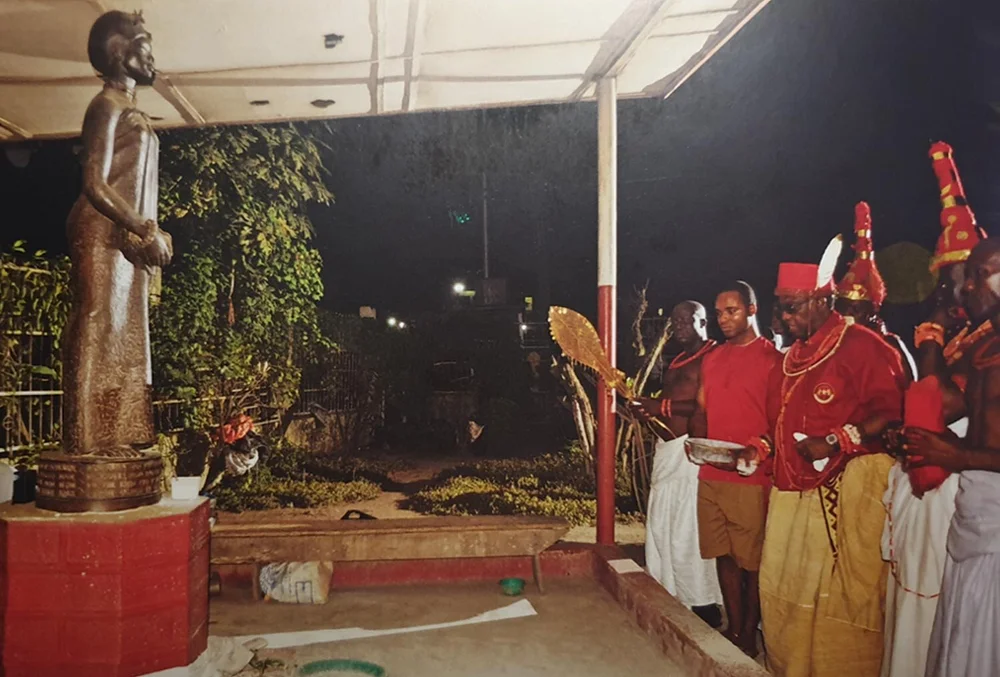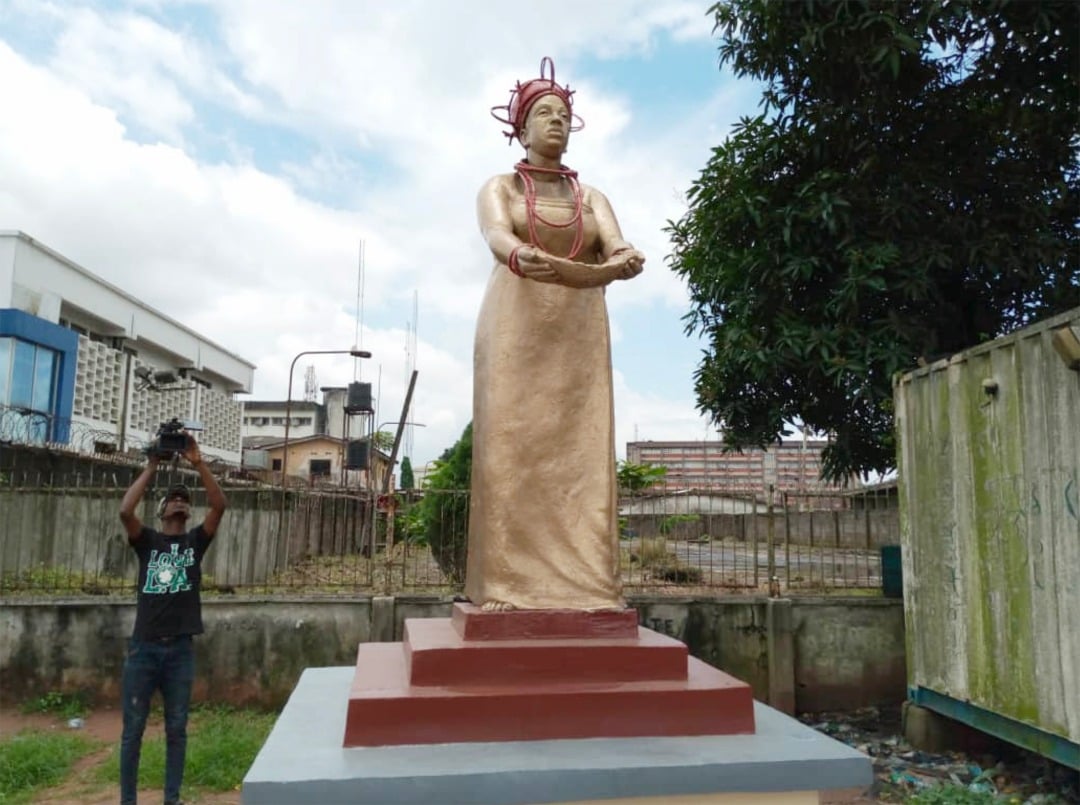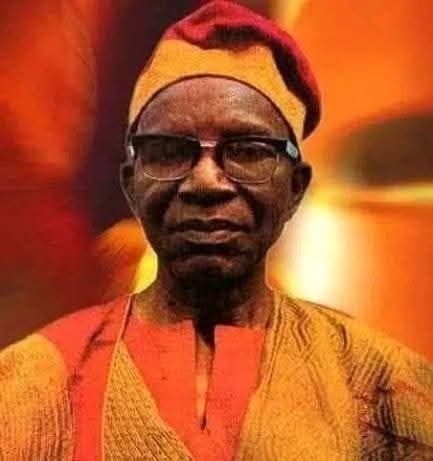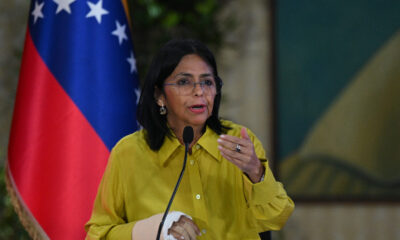Once hailed by some as the voice of a renewed Biafran agitation, Simon Ekpa’s influence has collapsed following his sentencing to prison by the Finnish Päijät-Häme District Court.
It was gathered that Ekpa’s imprisonment has shaken members of the separatist movement and cast a shadow over the recent declaration of a Biafran state by his supporters online.
The Päijät-Häme District Court sentenced the Nigerian-born Finn to six years in prison for terrorism-related crimes and other offences.
The 40-year-old former municipal politician from Lahti was convicted on multiple charges, including participation in the activities of a terrorist organisation, incitement to commit crimes for terrorist purposes, aggravated tax fraud, and violations of the Lawyers Act.
The court ordered that Ekpa remain in custody.
According to the judgment, between August 2021 and November 2024, Ekpa attempted to promote the independence of the so-called Biafra region in southeastern Nigeria through illegal means.
“He used social media to gain a politically influential position and took advantage of the confusion within a key separatist movement in Nigeria to play a significant role in it,” the court statement said, as reported by BBC News Pidgin.
But Ekpa denied all the charges against him.
Ekpa’s hubris
Ekpa had been thriving in his self-appointed leadership role, using online broadcasts and social media activities to assert influence and rally support before he was remanded in May 2025.
He gained prominence after the arrest of the detained leader of the proscribed Indigenous People of Biafra, Nnamdi Kanu, in 2021.
Kanu was arrested for instigating violence in the South-East geopolitical zone using various social media platforms.
Ekpa, wielding his influence, showed his strength by single-handedly ordering sit-at-home in the South-East region for years.
This was part of his strategy to advance the agitation for a sovereign Biafran state.
Ekpa’s sit-at-home orders forced residents across the South-East to shut down shops and stay indoors, while businesses and companies were compelled to halt operations.
The directive crippled commercial activities, slashed company profits, and resulted in significant economic losses for both the federal and state governments.
An intelligence report released in May 2025 revealed that over 700 people were killed in the South-East region between 2021 and 2025 as a result of the sit-at-home orders.
The report, published by Lagos-based consultancy SBM Intelligence, attributed the deaths to targeted killings of civilians who defied the weekly Monday sit-at-home directives and other sporadic orders, as well as violent clashes between members of the Indigenous People of Biafra and security forces.
Findings revealed that Ekpa received millions of naira in donations from supporters both within Nigeria and across the diaspora.
This was done through the platform of the ‘Biafra Republic Government-in-Exile’.
While the secessionist leader appeared to enjoy growing influence and attention abroad, the Nigerian government grappled with the escalating crisis at home.
In addition to issuing sit-at-home orders, Ekpa’s separatist activism drew global attention, particularly his calls to boycott Nigerian elections.
“No elections will be held! Nigerian elections will not be allowed in Biafran territory in 2023,” he declared in a video on social media.
Ekpa had publicly justified the use of violence.
“I support violence against Nigerian government forces. This is self-defence. They constantly attack us and have committed numerous war crimes. We have no choice but to defend ourselves,” he stated.
In 2023, Ekpa also commanded loyal armed groups, the “Biafra Liberation Army,” who terrorised communities in the South-East and targeted individuals perceived to be opposing the secessionist agenda.
His fall
The doom of the Finland-based leader of the Autopilot began in 2023.
The Finnish National Bureau of Investigation suspected a man who lived in Lahti of money collection offences.
Although the NBI did not initially name the suspect, a Finnish local publication, Yle, identified him as Ekpa.
Yle reported that he was detained on suspicion of fundraising fraud but released the same evening in 2023.
Despite facing multiple trials, Ekpa, who served on Lahti’s public transport committee as a member of the National Coalition Party, had not received any public comment from his party regarding the matter.
The NCP Secretary, Timo Elo, declined to comment on Ekpa’s possible membership of the party while speaking with Yle.
“We never say who is and who isn’t our member. That is confidential information,” Elo told Yle.
Elo, however, said that if a member of the party was suspected of terrorism offences, that would likely lead to their expulsion.
According to Elo, Ekpa’s role on the public transport commission, for example, should be assessed locally.
In May 2025, the separatist leader was remanded by the district court and scheduled to face charges.
Throughout his remand, Ekpa was held in the Kylmäkoski Vankila prison.
A senior detective superintendent at Finland’s National Bureau of Investigation, Mikko Laaksonen, told Saturday PUNCH that Ekpa could not get bail due to the criminal procedure of the country.
“Our procedure is based on the case, remand, or travel ban as coercive measures for limiting freedom of movement for persons suspected of offences to which such measures are applicable.”
A Finnish legal document obtained by Saturday PUNCH revealed that remand is a coercive measure implemented during a criminal investigation and trial.
However, our correspondent could not confirm if Ekpa had been transferred to another prison after his sentencing as of the time of filing this report.
Ekpa’s jail term splits agitators
It was noted that Ekpa’s imprisonment divided supporters of BRGIE over the approach to the agitation for freedom.
Also, the jailing of Ekpa impacted the proclaimed Biafran state.
Despite the announcement of independence on November 29, 2024, in Finland, and a proposed referendum to establish a “United States of Biafra” comprising 40 states, the initiative failed to produce any concrete outcomes.
Checks by our correspondent revealed that the official website of the movement had become inactive.
Attempts to access the site returned an error message that read, “This site can’t be reached.”
It was also gathered that several individuals who once supported the movement now believe it was merely a conduit for embezzlement, disguised as a struggle for Biafran independence.
This comes as the self-styled BRGIE Acting Prime Minister, Ogechukwu Nkere, took to his X handle, urging supporters to continue donating to the cause.
Nkere wrote, “Fund your freedom.”
In a separate post, he wrote, “The world can only be a good place when injustice such as this stops happening, where a freedom fighter is sentenced for terrorism.
“The Biafra Government calls on the good people of the world to intervene, because Finland has escalated the problem instead of providing a solution in Biafraland.”
Meanwhile, his posts were met with criticism from members of the movement.
Reacting in an X post, a member of the movement, @KelvinNnoa27957, wrote, “Just stop this nonsense already. Freedom is not funded; it is the steps taken in the right direction that lead to freedom. Nobody so focused on money ever achieved freedom, because money doesn’t really bring freedom; it is our action and seriousness that will give us freedom.”
Also, @nwa_nne accused Nkere of backstabbing.
He posted, “You can now go and collect your balance from whoever sent you against our PM. But be rest assured that, in due time, those who have used you against our PM will come looking for you, because they are done with you. Criminals don’t trust each other. They will come for you.”
Another member, @Biafratimeisnow, wrote, “Onyeoshi! Oge Nkere, a hardened criminal, was transferring money from the BRGIE bank account to his personal and business accounts. Now you all can understand why this criminal sold Mazi Simon Ekpa and also refused to allow anybody to become a signatory to our BRGIE account.”
Similarly, @AngusOkeke wrote, “You criminals sold out our PM, MSE, to keep extorting money from us, just as the criminals in DOS did to our Onyendu, MNK.
“But we genuine Biafrans are wiser. You criminals will never get shishi from genuine Biafrans, because genuine Biafrans have all of you criminals’ track records.”
Speaking on the matter in an interview with Saturday PUNCH, the President of Igboekulie, an association dedicated to promoting Igbo language and culture, Benjamin Obidegwu, stated that he did not support the current approach to agitation.
He acknowledged that the right to agitate was a fundamental entitlement of every Nigerian.
Obidegwu said, “My position has always been that issues about agitation for Biafra are political issues that should be settled politically. People have the right to agitate and express their concerns in a country. What is happening is not unusual, but it’s just a problem of approach.
“I have always said that Nnamdi Kanu’s problem is something that should be settled politically. If you try to do it in another way, the problem will remain. For Ekpa, he was sentenced by a foreign country. Igbo people have the right to complain about how they are treated in Nigeria, especially since after the civil war. If the government will listen, fine; if they don’t, the problems will linger, and it’s not good for the state of Nigeria.”
Also speaking, the President-General of the Coalition of South-East Youth Leaders, Goodluck Ibem, urged the public to refrain from funding non-state actors under the guise of supporting agitation.
He said, “People should stop these agitators who hide themselves under the pretence of fighting for freedom. What they are doing is not agitation. This is just a private business to defraud innocent citizens who are ignorant of their tricks and antics.
“There is no way they are fighting for freedom while carrying guns to shoot at people and also causing fear. People should stop supporting them by giving them finances.”
The apex Igbo socio-cultural organisation, Ohanaeze Ndigbo, had earlier commended the Federal Government for the incarceration of Ekpa in Finland.
In a statement, the Deputy President-General of the body, Okechukwu Isiguzoro, lauded the National Security Adviser, Nuhu Ribadu; the Minister of State for Defence, Bello Matawalle; and the Chief of Defence Staff, General Christopher Musa, for their efforts in dismantling the reign of terror that had affected the South-East zone.
FOLLOW US ON:
FACEBOOK
TWITTER
PINTEREST
TIKTOK
YOUTUBE
LINKEDIN
TUMBLR
INSTAGRAM

 Politics13 hours ago
Politics13 hours ago
 Business13 hours ago
Business13 hours ago
 Lifestyle14 hours ago
Lifestyle14 hours ago
 Lifestyle14 hours ago
Lifestyle14 hours ago
 Sports13 hours ago
Sports13 hours ago
 News13 hours ago
News13 hours ago
 Lifestyle4 hours ago
Lifestyle4 hours ago
 Lifestyle3 hours ago
Lifestyle3 hours ago
